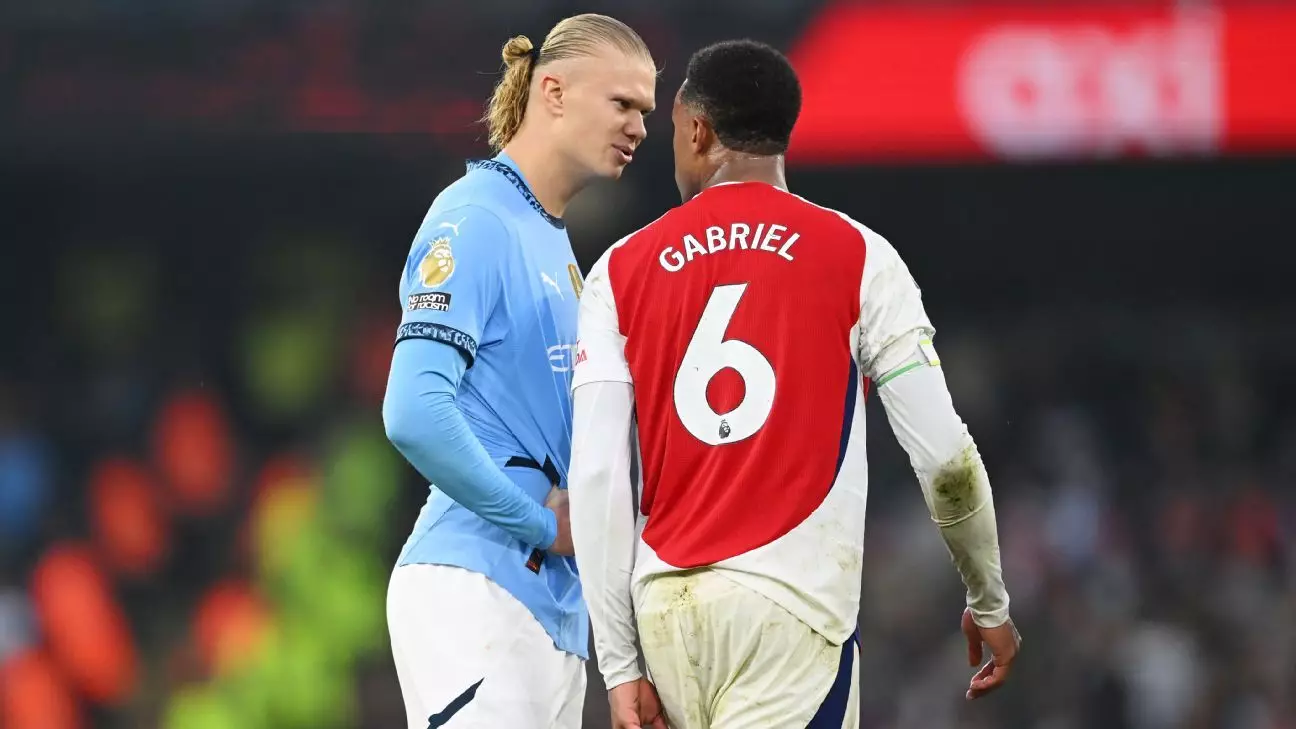The recent clash between Manchester City and Arsenal erupted into controversy as Erling Haaland’s behavior following a crucial equaliser sparked discussions around player conduct. In stoppage time, just after John Stones scored to level the match at 2-2, Haaland was seen throwing the ball at Arsenal defender Gabriel Magalhães. This moment, while seemingly minor, highlights the intense emotions that can bubble up in high-stakes matches. Despite the video footage capturing the incident, it was ultimately deemed not serious enough to warrant any disciplinary action from the FA.
On-field referee Michael Oliver missed the incident, yet the video assistant referee, John Brooks, assessed the situation and ruled that it did not amount to violent conduct. This decision underscores an ongoing debate regarding the efficacy of VAR in managing player actions and maintaining sportsmanship. The assurance from the FA that no further action would be taken against Haaland suggests an inclination to focus on gameplay rather than penalizing momentary lapses of composure, which can often escalate during high-pressure encounters.
Climate of Frustration
Tensions didn’t end with the final whistle. Haaland’s encounter with Arsenal manager Mikel Arteta was equally noteworthy. The Norwegian striker’s remarks urging Arteta to “stay humble” painted a picture of the heightened emotions at the Etihad Stadium. This exchange hints at an underlying frustration felt by City players, particularly following the controversial stoppage during the second half due to Leandro Trossard’s red card.
City defender Manuel Akanji expressed his team’s resentment towards what they perceived as time-wasting tactics employed by Arsenal, highlighting a broader issue: how games are managed by officials in challenging scenarios. These frustrations often lead to confrontations on the pitch, amplifying the rivalry between the two teams and adding a layer of intensity to future encounters.
Looking ahead, Pep Guardiola faces critical decisions regarding player selection for their upcoming Carabao Cup match against Watford, a fixture that occurs shortly after the emotionally charged battle with Arsenal. The potential absence of key player Kevin De Bruyne adds another layer of complexity, as his presence is crucial for the team’s dynamics. Guardiola’s options are limited, which could lead to a significantly altered lineup against a side they are expected to dominate.
The aftermath of Haaland’s actions serves as a catalyst for discussions on sportsmanship, the role of officiating, and the broader culture within competitive football. As tensions simmered on the pitch, the FA’s decision not to impose any retrospective punishment may encourage players to navigate these heated moments with a degree of caution, but that seems unlikely in the fervor of competitive sports. As Manchester City prepares for their next challenge, all eyes will be on how they manage these dynamics both on and off the field.


Leave a Reply